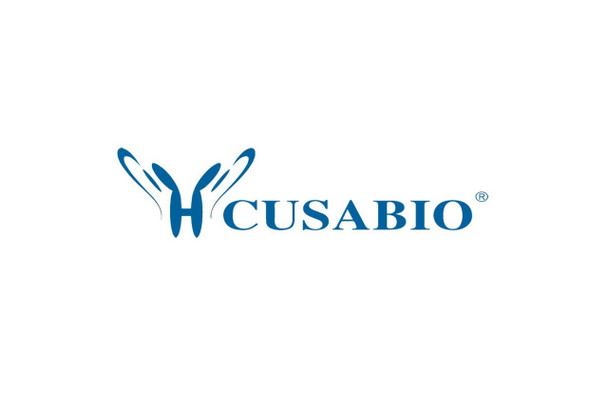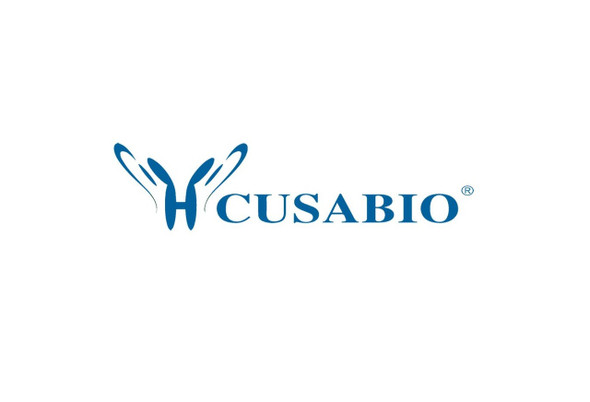Cusabio Mouse Recombinants
Recombinant Mouse RNA polymerase II subunit A C-terminal domain phosphatase (Ctdp1), partial | CSB-EP745884MO
- SKU:
- CSB-EP745884MO
- Availability:
- 3 - 7 Working Days
Description
Recombinant Mouse RNA polymerase II subunit A C-terminal domain phosphatase (Ctdp1), partial | CSB-EP745884MO | Cusabio
Alternative Name(s): TFIIF-associating CTD phosphatase
Gene Names: Ctdp1
Research Areas: Signal Transduction
Organism: Mus musculus (Mouse)
AA Sequence: HRNRKLVLMVDLDQTLIHTTEQHCPQMSNKGIFHFQLGRGEPMLHTRLRPHCKDFLEKIAKLYELHVFTFGSRLYAHTIAGFLDPEKKLFSHRILSRDECIDPFSKTGNLRNLFPCGDSMVCIIDDREDVWKFAPNLITVKKYVYFPGTGDVNAPPAARETQAR
Source: E.coli
Tag Info: N-terminal 10xHis-tagged and C-terminal Myc-tagged
Expression Region: 178-341aa
Sequence Info: Partial
MW: 24 kDa
Purity: Greater than 90% as determined by SDS-PAGE.
Relevance: Processively dephosphorylates 'Ser-2' and 'Ser-5' of the heptad repeats YSPTSPS in the C-terminal domain of the largest RNA polymerase II subunit. This promotes the activity of RNA polymerase II. Plays a role in the exit from mitosis by dephosphorylating crucial mitotic substrates (USP44, CDC20 and WEE1) that are required for M-phase-promoting factor (MPF)/CDK1 inactivation
Reference: "A tissue-specific atlas of mouse protein phosphorylation and expression." Huttlin E.L., Jedrychowski M.P., Elias J.E., Goswami T., Rad R., Beausoleil S.A., Villen J., Haas W., Sowa M.E., Gygi S.P. Cell 143:1174-1189(2010)
Storage: The shelf life is related to many factors, storage state, buffer ingredients, storage temperature and the stability of the protein itself. Generally, the shelf life of liquid form is 6 months at -20?/-80?. The shelf life of lyophilized form is 12 months at -20?/-80?.
Notes: Repeated freezing and thawing is not recommended. Store working aliquots at 4? for up to one week.
Function: Processively dephosphorylates 'Ser-2' and 'Ser-5' of the heptad repeats YSPTSPS in the C-terminal domain of the largest RNA polymerase II subunit. This promotes the activity of RNA polymerase II. Plays a role in the exit from mitosis by dephosphorylating crucial mitotic substrates (USP44, CDC20 and WEE1) that are required for M-phase-promoting factor (MPF)/CDK1 inactivation (By similarity).
Involvement in disease:
Subcellular Location: Nucleus, Cytoplasm, cytoskeleton, microtubule organizing center, centrosome, Cytoplasm, cytoskeleton, spindle, Cytoplasm, cytoskeleton, spindle pole, Midbody
Protein Families:
Tissue Specificity:
Paythway:
Form: Liquid or Lyophilized powder
Buffer: If the delivery form is liquid, the default storage buffer is Tris/PBS-based buffer, 5%-50% glycerol. If the delivery form is lyophilized powder, the buffer before lyophilization is Tris/PBS-based buffer, 6% Trehalose, pH 8.0.
Reconstitution: We recommend that this vial be briefly centrifuged prior to opening to bring the contents to the bottom. Please reconstitute protein in deionized sterile water to a concentration of 0.1-1.0 mg/mL.We recommend to add 5-50% of glycerol (final concentration) and aliquot for long-term storage at -20?/-80?. Our default final concentration of glycerol is 50%. Customers could use it as reference.
Uniprot ID: Q7TSG2
HGNC Database Link: N/A
UniGene Database Link: UniGene
KEGG Database Link: KEGG
STRING Database Link: STRING
OMIM Database Link: N/A









